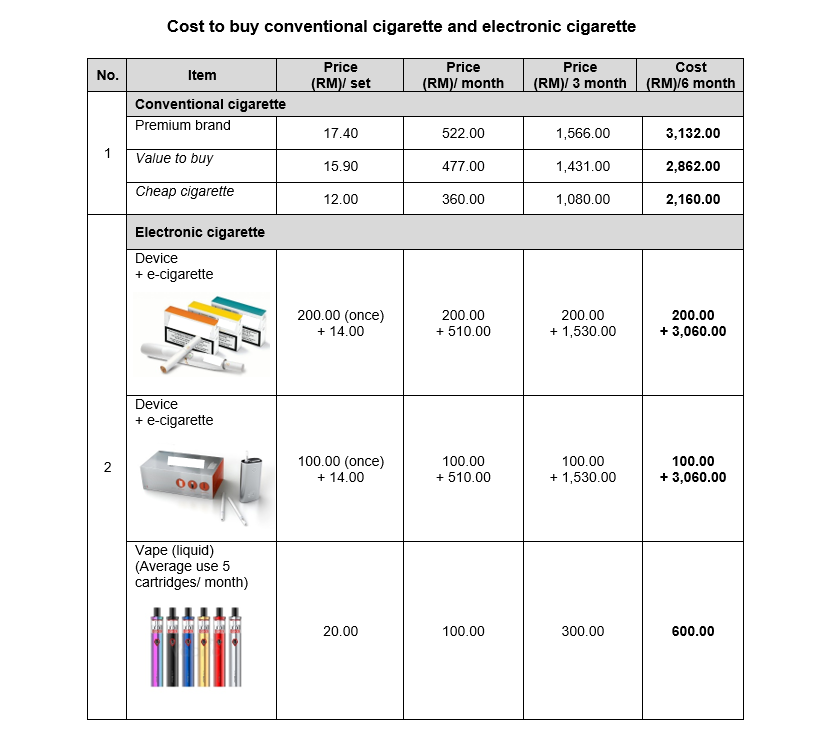It is estimated that heavy smokers spend almost RM1,000 per month on cigarettes.
ost individuals throughout the world are familiar with the act of smoking
-ADVERTISEMENT-
To be more specific, the term ‘smoking’ refers to the act or habit of inhaling and exhaling smoke by sucking on the lit end of a cigarette, cigar, etc.
Even though the chemicals contained in smoking materials can have a significant impact on one’s health, this behaviour has become so prevalent in our daily lives.
Because of how common and normalised smoking is, tobacco use has become one of the greatest hazards to global public health. It has even been designated as a national epidemic.
According to the American Journal of Physiology-Lung Cellular and Molecular Physiology*, the tobacco epidemic is one of the most significant public health issues the world has ever faced, claiming the lives of almost 8 million people annually
In 2017, 3.3 million tobacco smokers and persons exposed to second-hand smoke perished from lung-related disorders. This includes chronic respiratory diseases, tracheal, bronchus, and lung malignancies, respiratory infections, and tuberculosis.
In Malaysia, smoking kills around 20,000 people a year (Tobacco Atlas, 2015), while the cost of treating three out of six chronic tobacco-related diseases was estimated to be around RM2.92 billion (Global Adults Tobacco Survey, 2011).
In Malaysia, a day’s supply of cigarettes is expected to cost roughly RM15 per smoker

For heavy smokers who buy two boxes of cigarettes daily, their total comes up to RM30 per day.
Thus, heavy smokers would spend approximately RM930 for a month’s supply of cigarettes, meaning they’re spending almost RM1,000 per month on this habit.
Not to mention, the younger generation has turned to a new method of smoking — e-cigarettes. Depending on the gadget’s quality, the cost of an electronic smoking device ranges from RM59 to RM600, thus raising a person’s expenditures.
Those who cannot afford cigarettes but are addicted to them will always find a way to buy them, regardless of the long-term effects on their finances. That money should instead be saved for our children’s future, as opposed to being spent on something that could endanger our loved ones.
What’s more surprising is that purchasing a pack of cigarettes costs more money than one might think
Not many individuals are aware of how smoking might influence a family’s finances. The cost of smoking could be a significant factor that leads to a person’s descent into poverty, putting the lives of their family members at risk, especially their children.
This issue has become a prominent topic for everyone. According to BMC Public Health**, about 1.1 million children — nearly half of all children living in poverty in the United Kingdom — have at least one parent who smokes.
The same research also determined how the monthly cost of one pack of cigarettes can be compared to savings for children’s health insurance.
**Belvin, C., Britton, J., Holmes, J., & Langley, T. (2015). Parental smoking and child poverty in the UK: an analysis of national survey data. BMC Public Health, 15(1), 1-8.
Moreover, smoking causes our little ones to be exposed to the smoke, turning them into passive smokers
Numerous research has determined that those who are around smokers are indirectly exposed to cigarette smoke. This could put their health at risk, especially if they have asthma, as inhaling the smoke surrounding them could trigger an asthma attack at any time.
This is particularly harmful if one is smoking at home around young children, as it could result in increased costs for treatment if the kids were to get sick from constantly inhaling the smoke.
Imagine if you don’t have enough money to cover your children’s treatment costs, because you’ve depleted your finances by spending daily on cigarettes. This would be a problem in the future, especially since leaving children untreated can lead to serious health problems or even death.
That’s why we should raise awareness about how important it is to stop spending money on cigarettes and start saving for our children’s future instead
Because our kids did not consent to becoming passive smokers, saving money on a daily basis to cover their future medical expenses will ensure that they receive the treatment they deserve.
In addition, one strategy to reduce cigarette usage in this country could be to engage with medical insurance providers to offer families suitable plans for their household. We could suggest to insurance carriers that they establish a medical fund or savings plan for our kids. This could serve as a wake-up call for parents in this country to begin taking their children’s health seriously and saving for it.
The older generation who smokes should consider the health of their children and realise that investing in a fund for their health can lead to a better life, as opposed to purchasing a pack of cigarettes that will do more harm and cost more money in the future.
In addition, non-smokers’ health will significantly improve if the number of new smokers are drastically reduced
As a result, the effects of secondhand cigarette smoke can be mitigated. Side effects such as asthma attacks, heart disease, and cancer will be reduced, thereby alleviating the financial burden associated with treatment.
To ensure the eradication of this global issue, it’s important to start from a young age. Children must be stopped from purchasing tobacco products, including e-cigarettes. Even in the present day, smoking electronic cigarettes is considered a fashionable fad, causing youth to jump on the bandwagon.
Therefore, it is crucial for parents to prevent their children from spending money on these deadly substances.
In conclusion, it is evident that in order to end the tobacco epidemic in Malaysia, investigation and the implementation of strategies is required
Doing so will provide numerous benefits for our children. For a better future, it is essential for our nation to say no cigarettes and instead contribute to our children’s health. Let’s put out the ciggies, for our children’s future!










